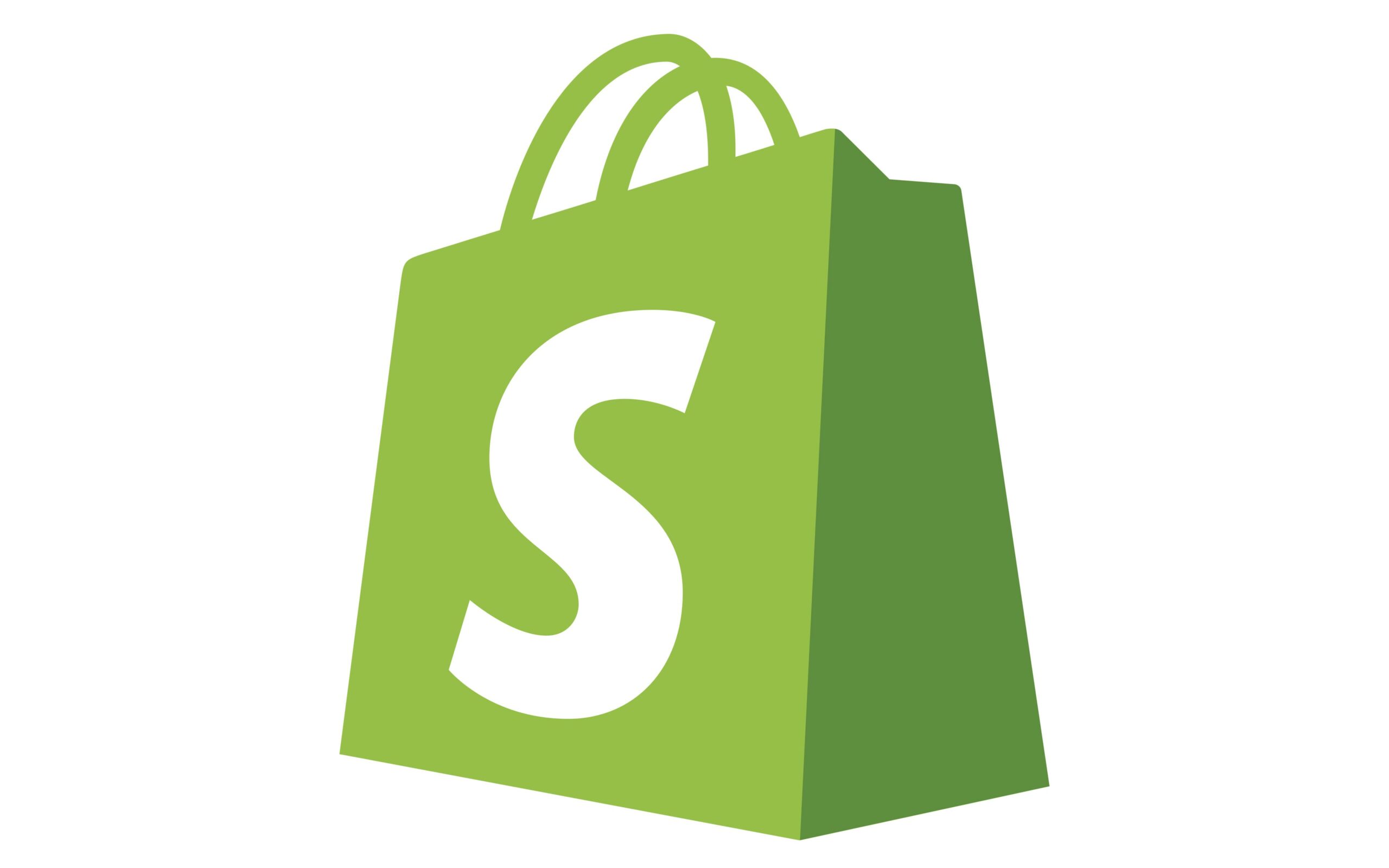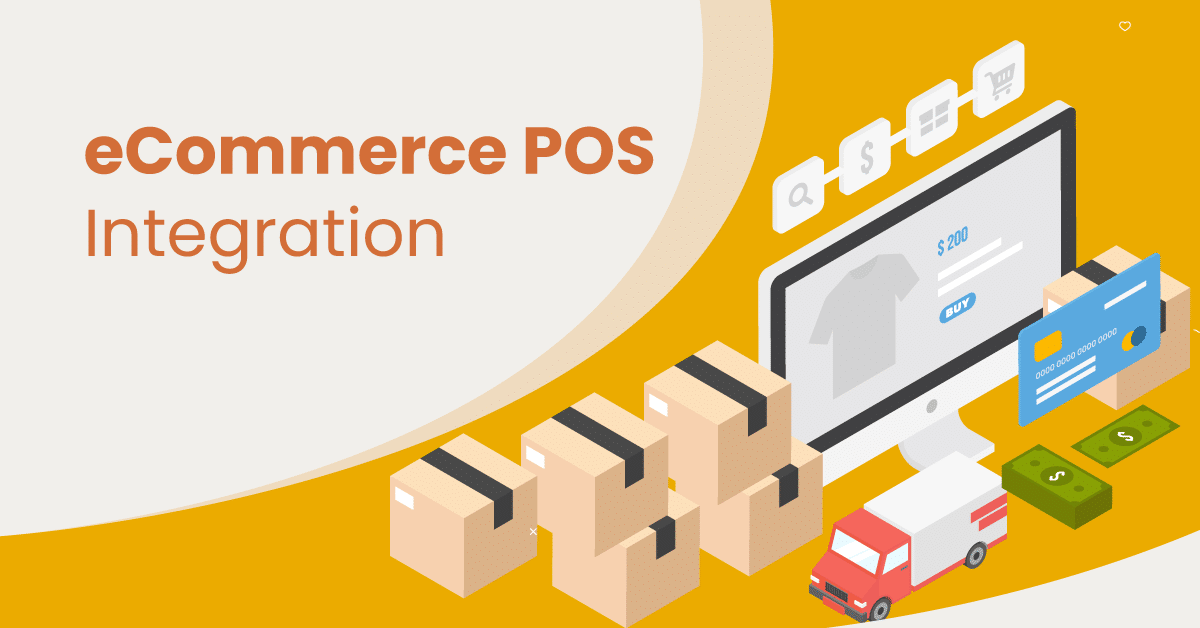As eCommerce grows rapidly, so do customer expectations. In a short time, the eCommerce website has gone from being an optional add-on to the central element of any retail system.
With this new environment, separating your existing physical store from your eCommerce site no longer makes sense.
By integrating your eCommerce and point of sale system, you can extend your website’s existing functionality and attract a broader audience to your brand.
This article discusses the benefits of eCommerce POS integration and how to integrate a point of sale system with your website. You’ll also learn more about choosing the best POS software for your business.
? Key Takeaways:
- Integrating your eCommerce platform with your POS system synchronizes online and in-store operations.
- A seamless integration allows for consistent information across all sales channels.
- By automating data synchronization, businesses can reduce manual data entry, minimize errors, and streamline processes.
- Integrating POS with eCommerce platforms enables businesses to attract a broader audience.
- Real-time inventory updates across channels help prevent overstocking or stockouts, optimize stock levels, and ensure product availability.
What Is eCommerce POS Integration?
An eCommerce POS integration is a solution that simplifies the connection between your eCommerce platform and your POS system.
In other words, your online and physical store POS systems are synchronized through a different platform or plug-in.
This synchronization allows you to extract detailed data from the system in real-time and process transactions and orders across online and offline channels.
It also provides automatic inventory updates for in-person and online sales and offers a centralized solution for online and offline transactions with various payment methods.
How Does an eCommerce POS System Work? Gotta come back
An eCommerce POS system connects your online and in-store sales, so everything stays in sync. It updates inventory, tracks sales, and manages customer data across all channels. Instead of running separate systems for your retail store and eCommerce site, you get one integrated platform that keeps operations smooth.
Inventory sync across all sales channels
With an eCommerce POS, your inventory updates automatically when you make a sale—whether it’s online or in-store.
If someone buys the last item in stock at your physical store, your website will reflect that, preventing overselling.
This is especially useful if you sell on multiple platforms like Amazon, eBay, or Instagram. You won’t have to manually adjust stock levels, reducing errors and saving time.
Faster and easier order fulfillment
When a customer orders online, the system routes it for fulfillment. If you offer options like shipping, in-store pickup, or local delivery, the POS ensures the order goes to the right place.
If an item is unavailable at one location, some systems can transfer stock from another store to complete the order. This keeps customers happy and prevents lost sales.
A better customer experience
An integrated POS lets customers shop however they want. If they buy online, they can return or exchange items in-store without hassle.
Loyalty rewards and discounts work the same way across all channels, making it easy to keep customers engaged.
The system also remembers past purchases, allowing for personalized recommendations and promotions.
Seamless payments and checkout
A good eCommerce POS accepts multiple payment options, including credit cards, mobile wallets, and Buy Now, Pay Later (BNPL) services.
Customers can start a purchase online and finish it in-store or vice versa. Since all transactions are linked, refunds and exchanges are also easier.
Business insights that help you grow
With everything connected, you get a clear view of sales performance, best-selling products, and customer behavior.
You can see which items sell better online versus in-store and adjust inventory or marketing strategies accordingly.
Some systems also offer forecasting tools to help you stock smarter and avoid running out of popular products.
Integrations that expand your reach
Most eCommerce POS systems connect with other business tools, such as accounting software, email marketing platforms, and social media marketplaces.
Benefits of eCommerce POS for Your Retail Business
eCommerce sales are rising, with 63% of purchase journeys beginning online. Businesses must have a solid online presence, especially those with both offline and online stores.
Integrating your POS and eCommerce site gives a complete view of customers and business, including inventory, orders, gift cards, and metrics, for a seamless omnichannel shopping experience and sales performance overview. Here are some other benefits of eCommerce POS integration:
Cross-channel promotions
Many eCommerce platforms make it easy to enable promotions within their own systems, but integrating a point of sale system goes beyond that. A retail system that seamlessly integrates eCommerce and point of sale can do a whole lot more:
- Set up and apply discounts across online and offline channels
- Suggest promotions and coupons automatically at checkout on point of sale and websites
- Collect and use loyalty points for online and offline orders
- Purchase and redeem gift cards at online and offline stores
In addition, you can gain insight into the promotion’s success through retail store analytics data.
In-store returns and pickups
eCommerce POS integration allows physical stores to become fulfillment centers for online orders. This reduces shipping costs and increases customer satisfaction.
Additionally, it encourages impulse purchases and provides a location for online returns. Adding a store map and product availability to your site further improves customer experience.
Better customer data
If your POS and eCommerce site are not integrated, you must manually reconcile data and analytics, which is time-consuming and increases the likelihood of errors.
A successful eCommerce point of sale integration automates this work and allows you to view the data holistically, gaining a more comprehensive and insightful view of offline and online customer behavior.
No more manual data entry
Integrating an eCommerce point of sale system eliminates manual data entry, saving time and effort. Synchronization of online order information prevents the need for data harmonization.
Combining your eCommerce platform with your point of sale allows for immediate processing and shipping of orders, improving the customer’s shopping experience.
When and Why Does Your Business Need an eCommerce POS?
When is the right time to invest in an eCommerce POS? Here are scenarios when you need to upgrade:
Scenario #1 – Expanding Online
Managing inventory can be overwhelming if you launch an online store or sell on third-party platforms (like Amazon).
Many retailers use separate systems for in-store and online sales and realize later that inventory mismatches, order fulfillment issues, and pricing inconsistencies create serious problems.
Without an integrated POS, you might sell an item online that is out of stock in your physical store, leading to canceled orders.
An eCommerce POS updates your inventory in real-time, keeping stock levels accurate across all channels.
Scenario #2 – Omnichannel Shopping
Modern customers expect to shop in-store, online, or use hybrid options like buy online and pick up in-store (BOPIS).
An eCommerce POS offers seamless omnichannel experiences, ensuring customers can check product availability online and pick up items without delays.
Customers who visit your store but find an out-of-stock item can buy it online and have it shipped.
Scenario #3 – Hassle of Separate Reports
If you track sales, revenue, and customer data separately for online and in-store purchases, you spend too much time manually reporting and missing business insights.
An eCommerce POS consolidates sales data, allowing you to monitor trends and make informed decisions.
For example, you can adjust stock if some products sell well online but not in-store. You will gain insights into customer behavior and tailor marketing.
Scenario #4 – Losing Sales Due to Stock
One pain point for retailers without an eCommerce POS is stock inconsistency. If customers find items unavailable in-store but available online, your inventory tracking system is not keeping up with sales.
This results in lost sales and canceled orders.
Scenario #5 – Customer Loyalty Across Channels
Loyalty programs drive repeat business. An eCommerce POS syncs customer data, so rewards and discounts can be earned and redeemed anywhere.
A fragmented loyalty system leads to confusion. An eCommerce POS fosters long-term relationships by unifying customer rewards.
Scenario #6 – Too Much Manual Data Entry
Manually entering online orders into your in-store POS is time-consuming. Without an eCommerce POS, business owners juggle separate databases and manually adjust stock.
This time could be spent growing the business. An integrated eCommerce POS automates these tasks.
When a sale is made, inventory updates, eliminating duplicate data entry.
Scenario #7 – Expansion to Marketplaces & Social Commerce
If you plan to sell on platforms like Amazon, you need an eCommerce POS that syncs inventory. Many businesses start selling on social media without realizing the challenges of aligning stock.
Manually updating product listings and tracking inventory can be overwhelming.
An eCommerce POS pushes product listings to multiple platforms, ensuring accurate stock levels and order processing.
Experience seamless synchronization and boost your efficiency with KORONA POS’s powerful eCommerce integration capabilities.
Contact usEssential Features To Look For In An Integrated eCommerce POS system
Before selecting a point of sale system to couple with your online store, consider the following features:
- Promotions and discounts
- Accounting integration
- Employee management
- Refunds and returns
- Tablet compatible
- Payment integration for online and mobile payments, such as contactless card processing and Apple Pay
- Email marketing integration
- Loyalty integration
- BOPIS or curbside delivery
- GMROI reports
- Payment plans
Cost of an Integrated eCommerce POS System
The cost of an eCommerce POS system varies based on features, business size, and the level of integration needed. Small businesses can start with basic plans for around $50–$100 per month, while larger operations with advanced inventory management, multi-location support, and custom integrations may pay $300–$1,500+ per month.
Beyond subscription fees, businesses should factor in hardware costs (registers, barcode scanners, card readers), payment processing fees, and potential setup costs. Some providers charge transaction fees or require specific payment processors, which can impact overall expenses.
Here’s a breakdown of typical costs for an integrated eCommerce POS system:
Cost Component | Price Range | Notes |
Software Subscription | $50-$1,500+/mo | Varies by provider, number of locations, and features |
Payment Processing Fees | 2.5–3.5% per transaction | Some systems require in-house processing |
Hardware (register, scanner, etc.) | $500–$2,000 | One-time cost; varies by setup |
Setup & Installation | $0–$1,000+ | Some providers offer free setup, others charge for onboarding |
Custom Integrations | Varies | API access or third-party software may have extra costs |
What POS System Should You Choose For Your eCommerce POS Integration?
Choosing the right POS system for your business depends on several factors. It’s essential to determine your business needs and then, based on those needs, look further into a type of POS solution that is right for you.
KORONA POS
KORONA POS overview
KORONA POS is an excellent eCommerce POS for small businesses. It’s great for high-volume retailers like liquor stores and convenience stores.
No contracts exist, and it is processing-agnostic (works with any payment processor). It also integrates with WooCommerce and other platforms.

Pros
- Great customer support
- Easy to use
- Device agnostic
Cons
- Not great reporting features
- No phone app
- No refund without a card present or offer partial refunds
Pricing
Essential Plus
$10/mo
- Inventory management
- Tip management
- Customer management
Freedom
$24.49/mo
- Clock in/clock out
- Inventory matrix
- Inventory adjustments
Omnichannel
35.99/mo
- 1 Hour a month of phone support
- Barcode manager
- Low stock alerts
SHOPIFY POS
shopify POS overview
Shopify POS is a cloud-based point of sale system designed for online retail businesses of all sizes.
Shopify POS works seamlessly with Shopify’s online store, keeping inventory, orders, and customer data in sync.
Since it’s built into Shopify, there’s no need for third-party plugins to manage products, promotions, or customer accounts.

Pros
- Seamless omnichannel integration
- Robust inventory management
- Robust customer management features
Cons
- Short trial period
- Advanced features cost more
- Dependence on internet
- Can be expensive for businesses with low sales volume
- eCommerce focus
Pricing
Basic
$39/mo
- For “solo entrepreneurs”
- Shipping discounts
- 24/7 support
Shopify
$105/mo
- For “small teams”
- Additional staff logins
- Lower processing rates
Advanced
$399/mo
- For scaling a business
- Custom reporting
- Enhanced support
Plus
$2300/mo
- For “more complex businesses”
- Unlimited staff accounts
- Customizable checkout
HIKE POS
HIKE POS overview
Hike POS is a cloud-based system that connects seamlessly with Shopify, WooCommerce, and BigCommerce. It keeps inventory and sales data updated across all channels, reducing manual work and errors.
It supports in-store pickup, shipping, and offline sales, so businesses can keep selling even without an internet connection. The system also includes customer profiles, loyalty programs, and multi-location inventory tracking.

Pros
- Excellent customer support
- ID customer verification
- Multi-store capacities
Cons
- Learning curve
- No fuel integration
Pricing
Essential
$59/mo
- Secure cloud backup
- Sell using Hike iPad & Android app
- Unlimited users
Plus
$99/mo
- Shopify, BigCommerce, WooCommerce, Magento, Neto integrations
- MailChimp Integrations
- Integrated label printing
Enterprise
Custom Pricing
- Premium API access
- Dedicated account manager
- Customised onboarding
SQUARE POS
SQUARE POS overview
Square POS integrates seamlessly with Square Online, making it easy for businesses to sell in-store and online without extra software. Inventory syncs automatically, and customers can order online for pickup or delivery. Square POS is one of the best options for small businesses looking for an affordable, all-in-one solution.

Pros
- Free to use (Basically)
- Flexible payment methods
- Great integration features
Cons
- Not ideal for complex and retail businesses
- Poor customer support
- Not ideal for businesses with high sales volume
- Insufficient reporting metrics
Pricing
Square Restaurant
From $0-$153/mo
- Point of sale app
- Inventory management
- Sales reporting
Square Retail
Starts at $0/mo
- Advanced inventory management
- Employee management features
- In-depth sales and customer reports
Square Appointments
From $0 to $69/mo
- Deposit management for appointments
- Custom intake forms and questionnaires
- Waitlist management
- Advanced reporting and analytics
TOAST POS
Toast POS overview
Thanks to its durable POS hardware and flexible software, Toast is an excellent choice for a bakery POS system. The tablets can handle a bakery’s heat, steam, and dust, ensuring they last longer than most other systems.
Toast’s user-friendly interface and seamless integration with various third-party services make it easy for bakery staff to manage daily operations and enhance the customer experience. Additionally, Toast POS supports a variety of hardware options, including handheld devices and self-service kiosks.

Pros
- Intuitive user interface
- Cloud-based
- Kitchen display system
Cons
- Frequent hardware malfunction
- Poor quality of hardware
Toast POS Pricing
Starter Kit
$0/mo
- Simple, flat-rate
- Automatic Feature and Software Upgrades
- Real-time fraud monitoring
Point of Sale
$69/mo
- Custom hardware configuration
- Toast Mobile Order & Pay
- Toast Scheduling Pro, Toast Tips Manager
Build Your Own
Custom
- Employee scheduling
- Guest marketing, loyalty, and gift cards
- Easy integrated payroll and tips manager
eCommerce POS Integration: Step-by-Step Preparation Guide
There are a few important points to consider if you want to integrate a point of sale into your website successfully.
1. Data transfer
Transferring data from your existing POS and/or eCommerce store will be a logical first step if switching vendors rather than upgrading a current system.
Be sure you have granted access to your new system to the appropriate parties and have all necessary notifications in place.
This could also be an opportunity to verify that your eCommerce platform and retail store are using unified SKU codes and that everything is consistent with your accounting software reports. Data transfers with KORONA POS take minutes.
2. Product Web Images and Descriptions
You may need to re-catalog your existing inventory, depending on the system you are currently working with.
Be sure to update and monitor your product listings within the framework suggested by your eCommerce solution.
3. Web page speed
An eCommerce site that is too slow will only turn off shoppers. For instance, if your product pages don’t have an LCP (Largest Contentful Paint) of less than 2.5 seconds, you could lose a significant percentage of your business.
Luckily, using an integrated system with KORONA POS takes care of all of this for you. The SEO-optimized solution ensures that your website follows all of Google’s latest best practices.
4. Sales reporting
Your new integrated POS system will provide a POS report that includes both retail and eCommerce stores. Ensure you understand how this works and how it differs from your current checkout system.
Review this data often. It provides insight into customer behavior and can help you better understand your cash management and align your business strategies.
5. Email marketing integration
Many retail point of sale systems now have built-in email marketing features, typically through integrations. This feature ensures consistency with your ability to send and track promotions and discounts to your customers easily.
FAQs: eCommerce POS Integration
How do I integrate a website into my POS system?
When setting up an eCommerce POS integration, some very important factors to consider include data transfer, product descriptions on your website, site speed, sales and inventory reports, email marketing integrations, and scheduling regular inspections of the online store.
Do you need a POS system for an online store?
You need point of sale software to be able to accept online transactions. However, you do not need point of sale hardware to help you accept payments, as the transactions will be made through your eCommerce site.
What is POS integration?
An integrated point of sale system combines hardware and software that helps businesses process sales and payments and manage inventory, employees, and customers. For companies that have both an online and a physical store, the eCommerce POS integration allows you to synchronize your store information and enable customers to have a seamless shopping experience.
Does my business need an eCommerce integration?
Integrating eCommerce operations with your brick-and-mortar sales will allow you to reach a broader audience and sell more. But if you choose to sell only in person at a brick-and-mortar store, you don’t need an eCommerce integration.
KORONA POS Makes POS Integration With Your eCommerce Store Simple
In a nutshell, an eCommerce POS integration aims to improve your customers’ experience. Customer satisfaction is at the heart of retail and eCommerce.
No matter how you look at it, eCommerce POS integration improves the customer experience in many ways and saves employees time.
Your eCommerce platform is a separate part of your store, not an additional option. Customers can explore both during their decision-making process – and not be confused by conflicting messages or pricing. KORONA POS can help you with all this.
Click on the button below to get started with KORONA POS.












